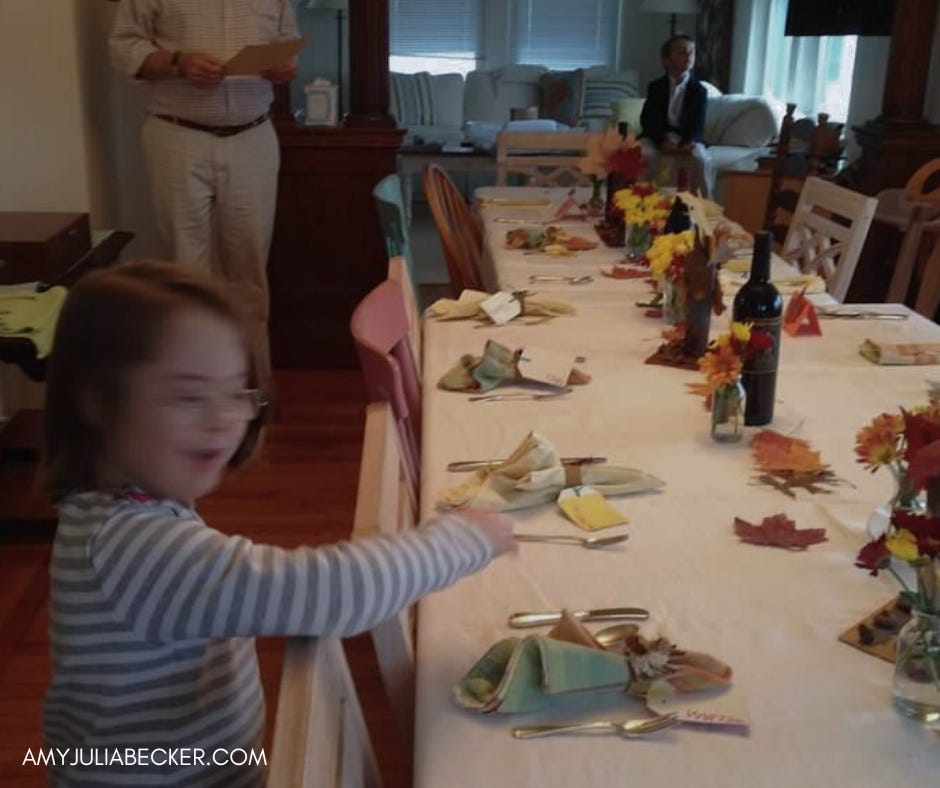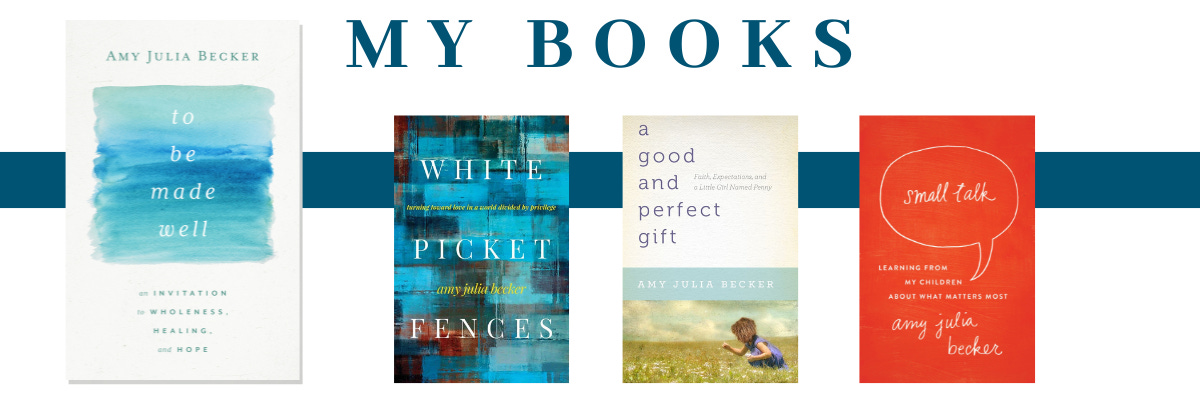After our most recent national election, I started wondering when/whether/how I should respond publicly to politics here in this newsletter or on social media. You might be thinking about this same thing as you imagine Thanksgiving dinner seated next to the relative who voted differently from you.
Why stay silent?
The argument for staying silent includes the thought that my voice won’t make a big difference, so why risk offending people or, in my case, losing “followers.” (As an aside, I found that every time I mentioned either candidate or their words or actions toward people with disabilities during the campaign, I lost followers and provoked controversy. I hope I also contributed something helpful. This held true even in a post about Penny voting for the first time without disclosing the candidate she selected.)
But I also need to heed the reality that I’m no expert on international conflict or the economy or climate change. Staying silent can demonstrate a proper humility, an awareness of all I don’t know, and a desire to learn from others, especially those with whom I disagree.
I don’t want to use my platform to advocate for a particular political party. I don’t want to increase division. And I don’t want to paint a portrait of conservatives or progressives as unilaterally right or wrong. Maybe it’s better to stay neutral.
The Difference Between Staying Neutral and Being Non-Partisan
A friend offered me some helpful advice when I shared these thoughts. She said there’s a difference between staying neutral and being non-partisan. She suggested that instead of seeing issues as political positions in favor of Democrats or Republicans, I could look at them in terms of values.
When a politician or a policy goes against my values—my personal values, my family’s values, my community’s values, my values as a follower of Jesus—then I probably want to speak up, especially when it’s related to issues I know something about. When a politician or a policy related to disability or family or faith violates those values, I will try to name it as a problem and propose a solution.
Wading Into Our Messy Reality
Every issue is complicated. Sometimes asking questions is better than proposing solutions. Sometimes the best course of action is to stay silent. But the work of peacemaking, of being salt and light, often involves wading into the messy realities of human conflict, with humility, and curiosity, and conviction, and courage.
So. I’m not going to stay neutral at Thanksgiving dinner or on social media. But I am planning to stay curious, to listen to other points of view, and to speak up, or act up, when the time comes.
How have you discerned when to speak up and when to stay silent? Reply to this email or leave a comment. I love to hear from you.
Happy Thanksgiving! (Keep scrolling for my recent favorites and Christmas gifts ideas!)
Amy Julia
P.S. There’s still time to order the Advent devotional Prepare Him Room. Jesus was born into hardship and disappointment. Yet in that very real, very disillusioned, very raw place—he brought peace, hope, joy. He brought love. That comforts me. Walk with me through the season of Advent—begins December 1.
Three Recent Favorites
1. The Antidote To Not-Enoughness | Robin Wall Kimmerer.
I could listen to snippets of this conversation every day just to remind myself of the truth of our interdependence and the abundance of provision in this world. It prompted me to buy Robin Wall Kimmerer’s new book, The Serviceberry.
2. How the Ivy League Broke America.
I’m grateful that David Brooks is critiquing the foundations of American meritocracy and seeking to expand our understanding of how to reform the meritocracy. I still have questions about how we value the people who will never fit within the bounds of the meritocracy, and I’ll write more on that in a few weeks.
3. The Body She Had.
In case you missed it, I talked on the podcast last week with Rosemarie Garland-Thomson about this essay. It’s a compassionate and challenging meditation on which lives we value, how we make choices, and what it would look like for us to live in love.
More Link Love
REIMAGINING FAMILY LIFE WITH DISABILITY: I respect Sissy Goff and Dave Thomas so much. They are just wonderful, warm people. What a joy to get to talk with them about parenting and writing and what matters most.
THE ROLE OF FAMILY SUPPORT: And what a delight to talk with Brady Murray, founder of Rod’s Heroes, about what belovedness means and how having a child with Down syndrome has shaped our family and our imagination.
And finally… books make great Christmas presents!
As we head toward this holiday season, many of us have lots of gifts to buy, and, as I say every year, books make great gifts! You may know this already, but in case you don't, I have written four books that might make perfect gifts for loved ones on your list.
One is called A Good and Perfect Gift. It's a spiritual memoir about what it took for us to receive our daughter Penny as the gift that she is.
The second is called Small Talk. It's a parenting memoir about the early years of parenting our kids and the ways that helped me to fall apart and be put back together.
I also wrote a book called White Picket Fences: Turning Toward Love in a World Divided by Privilege, which seems all the more relevant to me in the midst of our continued polarized social divisions. It's talking about how to live with hope and healing in the midst of such divisions.
And then, most recently, I wrote a book called To Be Made Well, which is about the nature of healing and how we can be people who participate in healing, both on a personal and on a communal level.
🎙Listen to the podcast Apple | Spotify | YouTube | More
📰 Miss a week? Read past newsletters here.
📧 Questions or feedback? Leave a comment. I read every comment and email reply from you!






